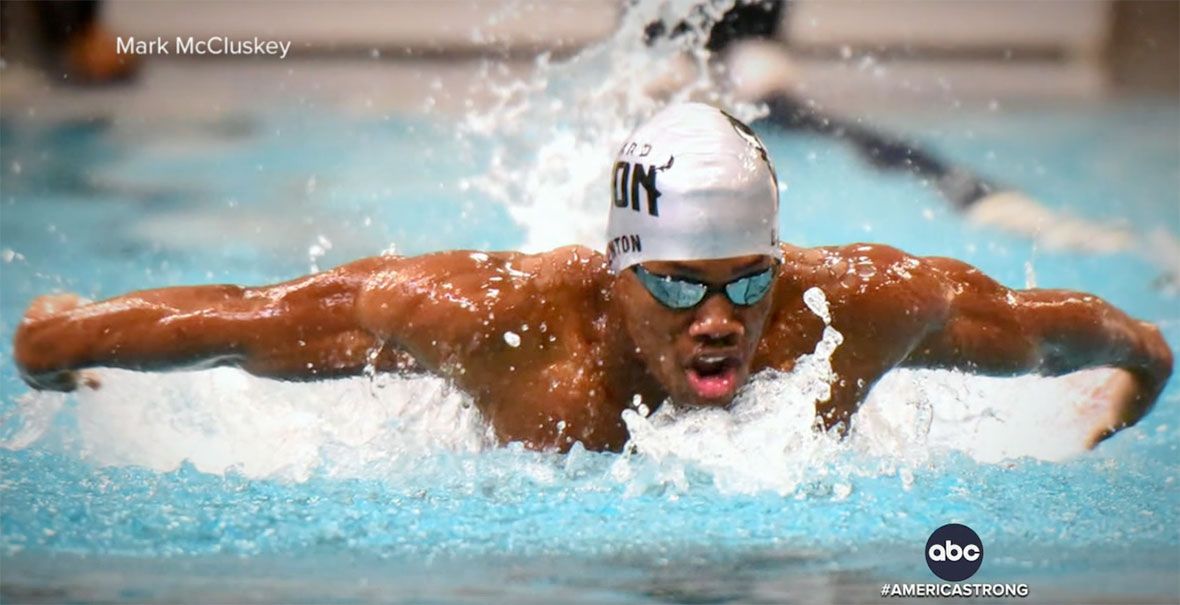
Why I’m in awe of the Howard University swimming and diving team
By Gina Miller
When we follow threads back through
history, appalling origins or explanations for certain contemporary
social issues / racial matters are often discovered. This was my
experience when I took hold of my children’s (and my own) education. It
set me on a path whereby I feel compelled to get underneath things and
gain historical context and true understanding. Many things that I have
learned through the years have been shocking and heartbreaking, and our
country’s history with regard to swimming and water is one such
example.
Notably, before the slave trade,
historical records show that Africans were excellent swimmers, and that
capability was often exploited by enslavers. (Enslaved people were
often put to work as fishermen and divers, for example.) When it became
apparent that swimming could also be a means of escape, however, the
enslavers used violent methods (as well as fearmongering) to force
enslaved people not to swim.
And then we can look at the racial
inequity and violence that were baked into the history of swimming pools
in America – with pools not being built in neighborhoods that were
populated predominantly with Black people and, later, with pools that
were racially segregated and highly unequal (much like schools) – that
is if Black people were even able to use them without experiencing
violent assaults that occurred in places such as Pittsburgh.
As an aside, I’ve noticed that, in
many ways, water has represented life or death for Black people. I can
attest to that based on what I’ve learned after marrying into a Gullah
family. Of course, many lives were lost as some enslaved people jumped
overboard during the Middle Passage. Those who ended up here in the
Lowcountry of South Carolina were often driven from the inland to the
outskirts, near the water, because that land was deemed less valuable.
As a result, Gullah culture became entwined with the water, which
sustained them for generations. It’s also why many historic Gullah
cemeteries are located near the water – not to mention that the Gullah
see this as a way for the spirit of the dead to be able to travel back
to Africa.
Our history sheds light on so much of
what we see today. To me, it’s no wonder that many Black people are
fighting hard to reclaim the water. And this is one of the reasons that
the story of the Howard University swimming and diving team moves me so
deeply.
Check out this inspiring video.

